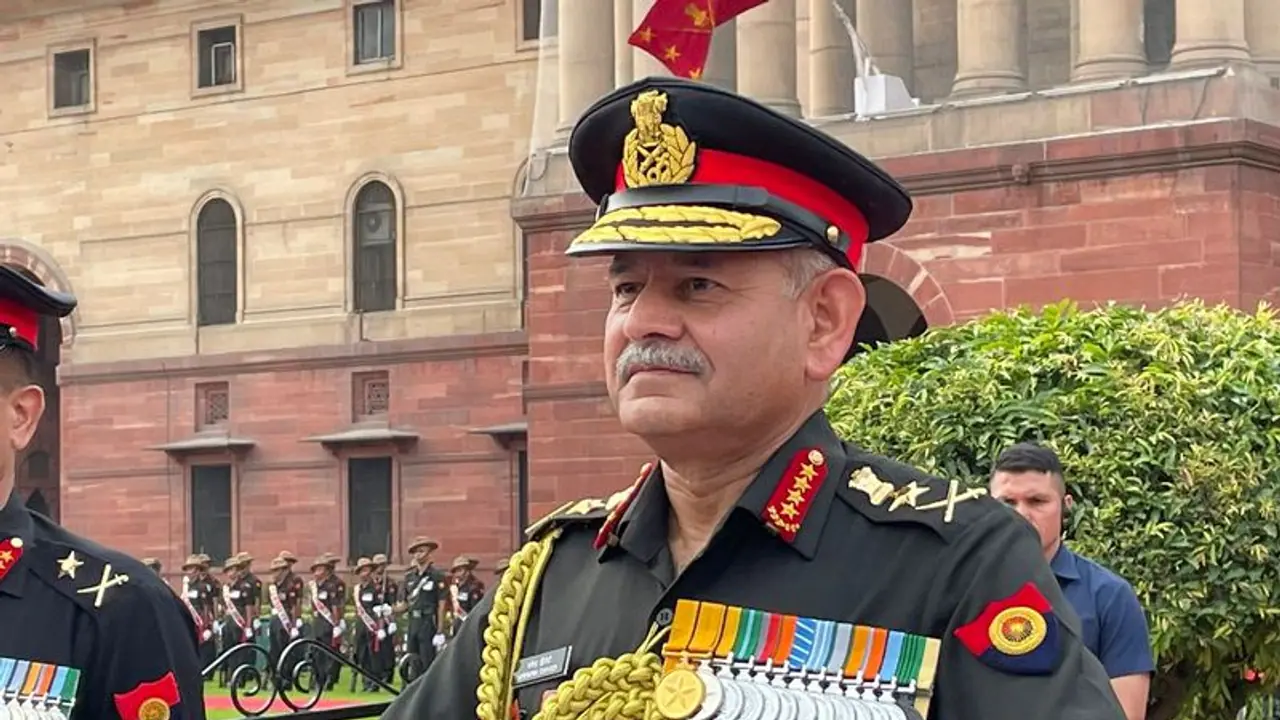Beginning from Karakoram Pass to Demchok, there are 65 patrolling points, of which India has lost the patrolling rights to 26, a research paper submitted by Leh's senior superintendent of police, PD Nitya, in 2023.
New Delhi: Stating about the prevailing situation in the eastern Ladakh as "stable but it’s not normal and it's sensitive", Indian Army Chief General Upendra Dwivedi on Tuesday said that the force is concerned until April 2020 situation is restored, adding that they are fully operationally prepared to face any kind of contingency.

Speaking at the Chanakya Defence Dialogue, General Dwivedi said: "As far as China is concerned, it has been intriguing our minds for quite some time. With China, you have to compete, cooperate, coexist, confront, and contest... So what's the situation today? It's stable, but it's not normal and it's sensitive. We want the situation to be restored back to what it was before April 2020, whether in terms of the ground occupation situation or the buffer zones which have been created or patrolling which have been kind of planned as of now."
As reported earlier by the Asianet Newsable last year that India rubbishes PLA's buffer zone demand, insists on China restoring patrolling rights in Depsang, the Army chief said: "So until that situation is restored, as far as we are concerned, the situation will remain sensitive and we are fully operationally prepared to face any kind of contingency...Trust has become the biggest casualty..."
Defence Minister Rajnath Singh flags off Vayu Veer Vijeta car rally to mark 92nd anniversary of IAF
India and China share an 832-km-long line of actual control in the eastern Ladakh, which has been witnessing the border standoff since April 2020.
In 2020, China's People Liberation of Army (PLA) breached all the five agreements that the political leadership of both the countries signed since 1993. Beginning from Karakoram Pass to Demchok, there are 65 patrolling points, of which India has lost the patrolling rights to 26, a research paper submitted by Leh's senior superintendent of police, PD Nitya, in 2023.
The two countries have held several rounds of talks at military as well as diplomatic levels to work towards restoration of the pre-April 2020 situations.
On being asked about the China constructing villages along the LAC, he said: "..They are carrying out this artificial immigration, settlement. No problem, it's their country, they can do whatever they want. But what we see in the South China Sea. When we talk about the grey zone, initially we find fishermen and those kinds of people who are at the forefront. And in order to save them, then you find the military moving in..."
"As far as the Indian Army is concerned, we have already been having this kind of model villages... But more importantly, now the state governments have been empowered to put in those resources and this is the time when the army, state governments and supervision by the central government are all coming together. So the model villages that are being built now will be even better..," he added.
Talking about the Grey-zone warfare, the Army chief said: "...Do we call Doklam a war? Do we call Kargil a full-fledged war? Do we call Galwan a war? The answer is no. So all these are basically part of the grey zone battle. So we need to be prepared for it."
"And I keep saying this, as far as the thought process is concerned, both the COs should be on the same page, that is the Commanding Officer and the Army Chief. So this means that there should be common thinking at the entire level because a small tactical miss action will lead to a strategic ramification which can involve the entire country. So, keeping this in mind, we are preparing ourselves for grey zone battles. So, in all domains, we need to prepare ourselves..," Gen Dwivedi said.
